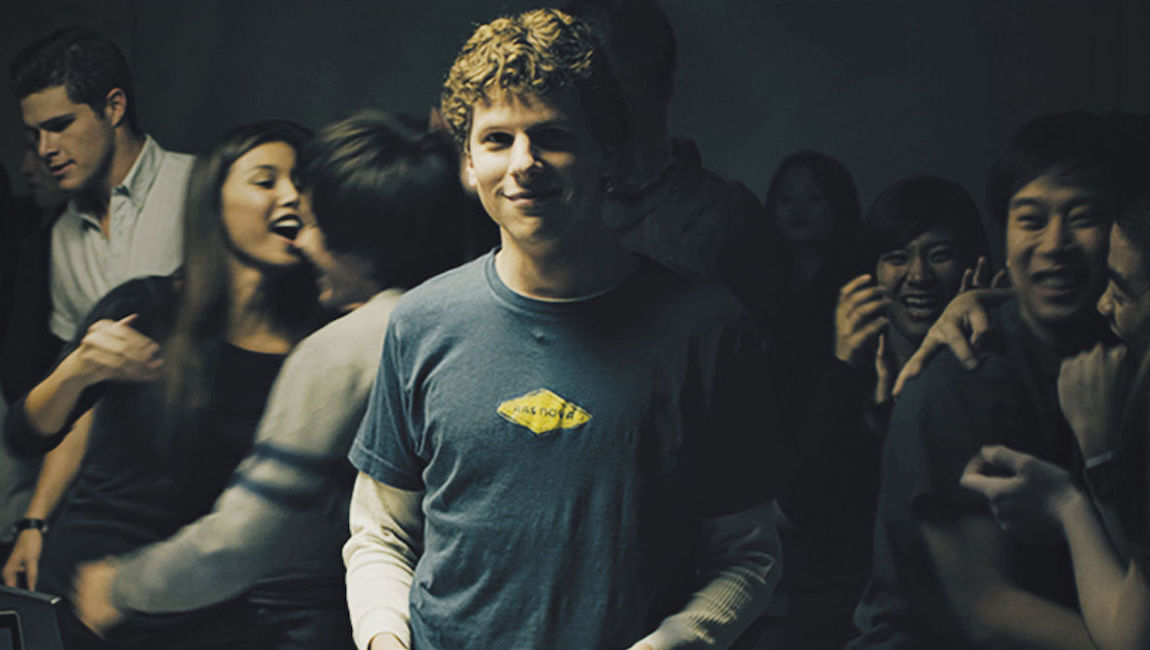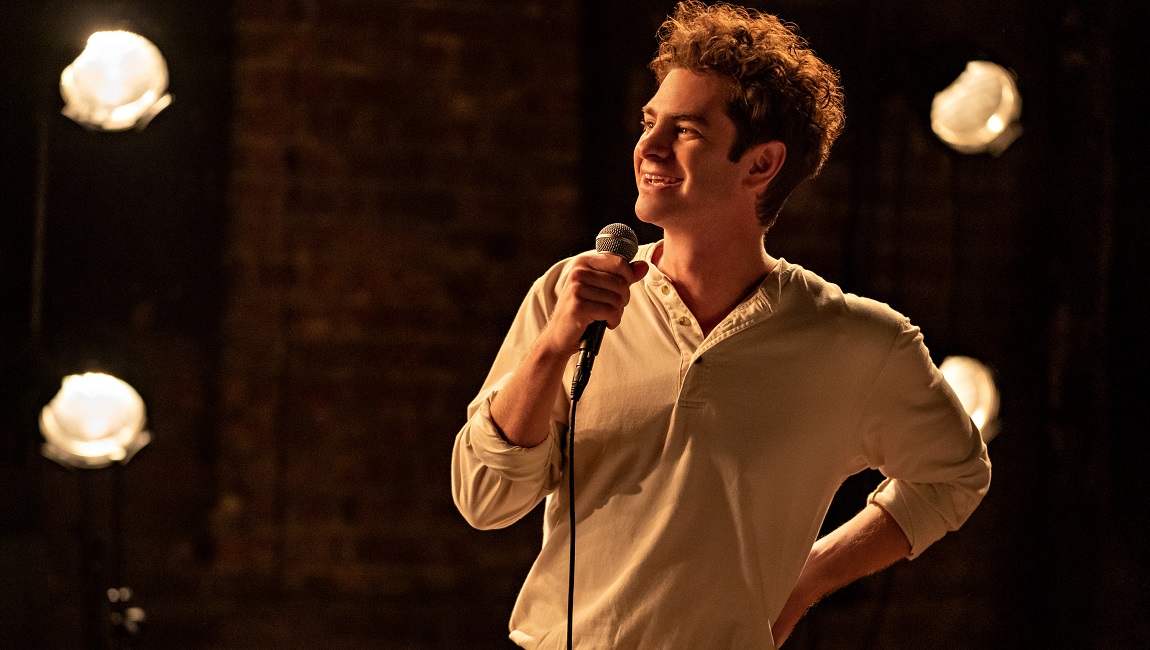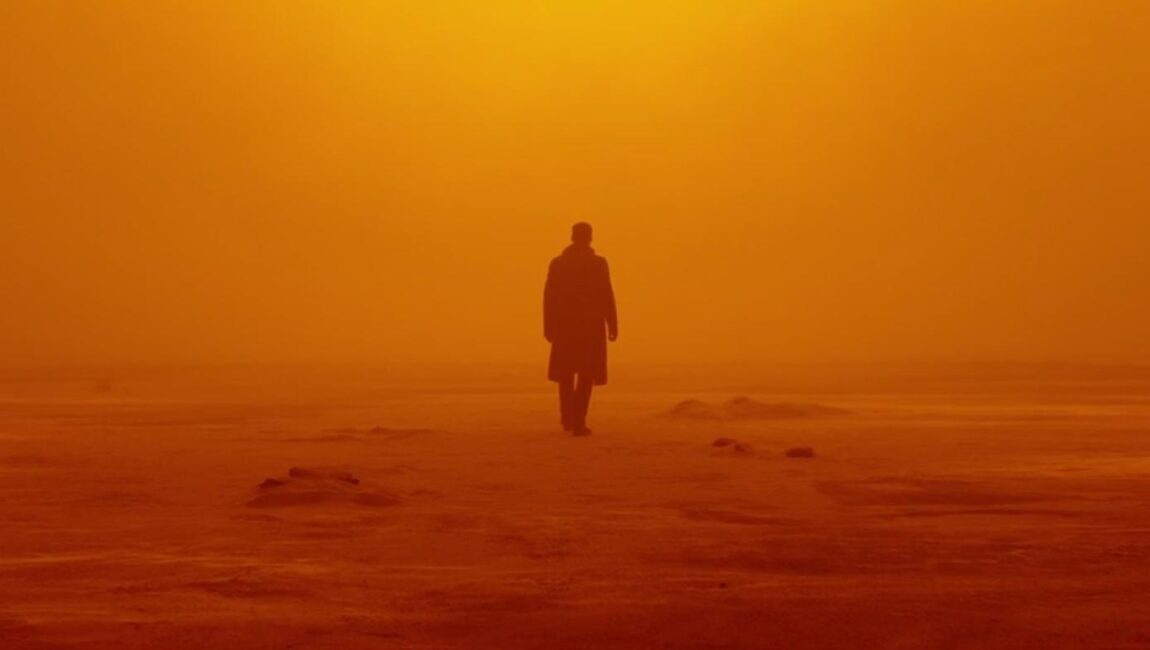The labyrinthine social hierarchies of David Fincher’s The Social Network facilitate a narrative pinball game; competing male egos, hidden agendas, brooding desires, and palpable anger all bounce around beneath a slick, Internet-age façade. The men of Fincher’s haunting film are possessed by these ill virtues, unable to realize the ramifications of their often petty decision-making, both in business and in friendship. They’re not just hindered by the desire to control, but by the need to be recognized for the power that they wield, which in its own way proves incredibly dangerous for them. Mark Zuckerberg (Jesse Eisenberg), Eduardo Saverin (Andrew Garfield), and the other founding members of Facebook consistently miss the forest for the trees when shaping personal relationships, always intent on conquering each other in selfish competitions. The Social Network showcases their egos turn from fledging to monstrous, ambitious to conniving with the click of a mouse, fashioning a tech-savvy college landscape of dreamers, nerds, and savants who all on some level believe an online presence carries more credence than bonds forged in real life.
As many have noted, The Social Network opens brilliantly, with a verbose war of words between Zuckerberg and his soon-to-be ex-girlfriend Erica Albright (Rooney Mara). While sharing a drink at a Harvard pub, the couple moves through topic after topic, Mark’s “Stair Master” dialogue jumping between SAT scores, his fragile self-image, and his desire to enter Harvard’s “final clubs.” When the conversation suddenly turns sour, the underlining issues of class, intelligence, and ego come to the forefront. The degeneration of this relationship, at least according to writer Aaron Sorkin’s source material (Ben Mezrich’s The Accidental Billionaires), becomes the impetus for Zuckerberg’s online buffoonery that night, a retaliatory rant against women that culminates in his brief, server-crashing website Facemash. This act of social defiance gets Zuckerberg in trouble with women’s groups, but also draws the attention of Cameron and Tyler Winklevoss (both Armie Hammer, in a stunning feat of CGI), stud twins who, along with their business partner Divya Narendra (Max Mingehlla), have an idea for a social media site based on exclusivity. Zuckerberg then uses their offer as a starting point for his own, more extensive online masterpiece: Facebook.
The rest, as they say, is history; Zuckerberg and Saverin launch the site, spreading a feverous online craze from college to college, first in America and then across the pond to Europe. Sorkin’s jumpy script weaves together the exciting evolution of the site (always from the outside looking in at Zuckerberg’s sudden fits of brilliant inspiration) with two key depositions between Zuckerberg, the Winklevosses, and Saverin, who years later sue each other for ownership of the billion-dollar company. The Social Network hits some speed bumps during its second half, when all of this heavy narrative lifting begins to muddle the concise characterizations established in its whirlwind opening. But, as in Zodiac, The Game, and even Se7en, plot is subordinate to the rhythmic pulse of Fincher’s filmmaking; similar to his best works, The Social Network provides layers of texture, light, and color, placing much value on each obsessive conversation. Fincher has crafted a modern melodrama worthy of Sirk, a battle for camaraderie and power in an online world devoid of the hopeful flourishes of color that were Sirk’s hallmark.
Fincher’s visuals and Sorkin’s script give the film its momentum, but Trent Reznor and Atticus Ross’s slow burn of a score elevates The Social Network to the level of great historical revisionism. During key moments in the film, music cues either heighten a sense of movement and space (as with the kinetic boat race on the Thames), or subdue the extroverted actions of fragile characters (the opening credit sequence, which takes us through Harvard, comes to mind). For these reasons, the score dictates the mood of the film and, maybe even more than Sorkin’s break-neck dialogue, acts as the perfect corollary to Fincher’s somber visual approach. The music dissolves the facts into a disjointed, almost impressionistic timeline, one that allows for multiple interpretations of characters mired in grey contradictions. Yet it’s Eisenberg’s brilliantly enigmatic performance that allows these talents to surround his character’s aching existence, opening up Zuckerberg’s dimensionality even when he’s trying his hardest to depict him as an irredeemable asshole.
The Social Network is not the film of The Internet Generation. It’s not the next Citizen Kane, nor the feature-length Sorkin ramble some have labeled it. These hyperboles do a robust character study of male angst and broken ego a grave disservice. Its power stems not from a grandiose message or critique, but from subtle shifts in thematic concern. Fincher recognizes that clicking “like,” “add,” or “friend” on Facebook carries an ethical ambiguity, just as planting a story about your best friend, manipulating an investor, or sinking someone’s hopes and dreams for no other reason than to see them squirm stirs the consciences of its characters. Decisions made in these social networking communities do not exist in a vacuum, and no matter how small or tertiary they appear, they can also carry a deeper weight and consequence. The final shot of The Social Network finds Zuckerberg waiting for justification from the one woman who matters to him, caught between terrible yearning and a still lingering selfishness. For Fincher, this contradictory form of companionship gets refreshed, and refreshed, and refreshed, until the word has little meaning. He’s ultimately asking: With friends like these, who needs friends?







